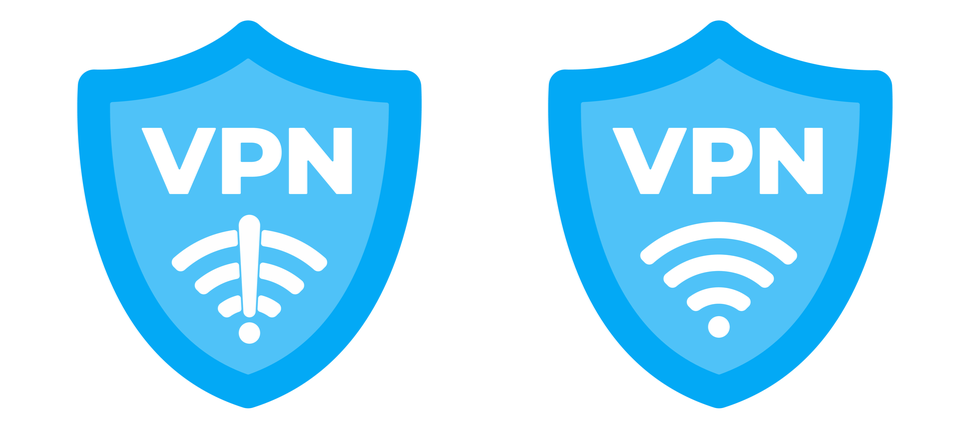Defining VPNs: Why Are They Important For Web Security?

A Virtual Private Network, or VPN, helps secure your network connection, even when you are using a public network. Imagine you are at the airport and want to use the public Wi-Fi offered for free by the airport. You want to get some important work done and access certain websites – but having read about the insecure nature of many public Wi-Fi connections, you are in two minds whether to use it or not.
Enter VPN.
If you have a VPN, it will encrypt your internet traffic and also mask your online identity. Its job is to ensure your internet activities are difficult to track, which keeps you safe from the roving bands of attackers scouring public networks for their victims. This sounds very much like the dystopian world you see in movies, but the threat landscape is pretty similar and you need to be aware of the threats you face, and the necessary preventive measures like VPN that will help keep your internet activities secure.
How a VPN works
A VPN will hide your online identity. This identity is known as your IP address. When you use a VPN, your IP address is redirected through a remote server purpose built for this. The server is run by the VPN host. Sounds confusing? Let’s simplify it a little; when you send a request to access information on the web (you want to access a website), this request is routed through the VPN server, which makes your ISP or any third-party blind from the perspective of the websites you are visiting. They lose sight of your browsing activity. Your web activities are safe from prying eyes.
A data tunnel is created with a local network at one end and an exit node at the other in a location, which could be thousands of miles away from your current location. This means ISPs and other third parties who want to track your location are fooled into thinking you are actually at some other location.
The VPN will encrypt your data when it is sent over the Wi-Fi network. This means if cybercriminals access your data, they won’t be able to make sense of it. This will allow you to use any network including a public Wi-Fi network in a safe and secure manner.
Why should you use a VPN service?
A VPN is a great idea if you want to protect your privacy while browsing. This is the biggest benefit it brings to the table. So the next question is: which information it can mask?
Hides browsing history
The use of a VPN will hide your browsing activity making sure the ISP and web browser are clueless about the sites you are visiting. There are plenty of reasons why you might want to make sure your browsing history stays private. A simple enough reason: you are searching for the lowest hotel rates. If you aren’t using a VPN, hotel websites will know you are looking for the cheapest rates, and will throw targeted ads your way, these will not necessarily have the cheapest available rates.
There are also times when you are searching the internet for some really sensitive piece of information, say around a medical illness or some other problem you might be facing. In the absence of a VPN, your search can be tracked easily.
Hides your IP address and location
Perhaps you want to visit a website that you don’t want anyone else to know about. If you are not going through a VPN, your IP address is fair game. The sites you are visiting might not be illegal, but there are reasonable reason ot want to keep this information private. I you aren’t using a VPN, your IP address will give the “secret” away. What’s more, it’s not just your IP address – your location that can be tracked. Think what can happen if someone with malicious intent get hands on your search history. In a worst-case scenario, this history can be used to blackmail you.
Hides your devices
The devices you use, your laptop, tablet, smart phones, are vulnerable to cyberattacks. A VPN encrypts all data you send and receive, which means cybercriminals will find it difficult to hack into your devices, even if you are using a public Wi-Fi network. This security benefit becomes even more important at a time when most of us are working from home and using home ISP providers, who might not be as responsible about maintaining the browsing privacy of users.
Safely access organizational resources
While working remotely, you might need to access resources on the company’s network. It’s important to note that this particular need is also on the radar of cybercriminals. If you do not access these resources safely and securely, you will offer criminals a vulnerable point of ingress that will be exploited with glee. Ideally, you should use a VPN to access your corporate network and get the advantage of superior encryption to ensure that important corporate files can be accessed safely and securely.
It’s all about security
It’s imperative to combine a VPN with an anti-virus solution that deploys multiple security features to keep you safe online. Sophos Home takes a layered approach to security to protect your home computer from advanced threats. It’s malware scan and clean feature conducts a deep scan of your computer, identifying and removing hidden threats lurking on your system including viruses, trojans, rootkits, spyware, and more.
It also protects against viruses, worms, bots and more with AI enabled threat detection, and its ransomware security protects personal files and photos from being encrypted. With Sophos Home, you get all round protection that safeguards you from the kind of cyberthreats that can wreak havoc on your computer and in your life.